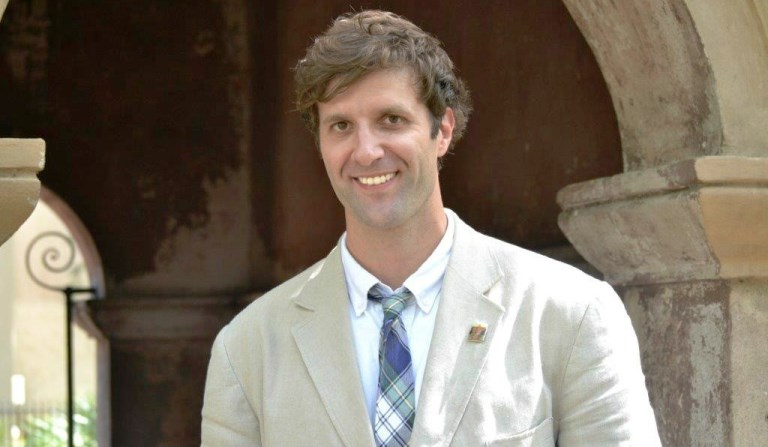College Q&A: Writer, professor, and College alumnus discusses article in The Atlantic, recalls top-quality education at Illinois
by The College of Education / Jul 10, 2014

Jon N. Hale, M.Ed. ’06 EPOL, Ph.D. ’09 EPOL, recently contributed an article to The Atlantic called “The Forgotten Story of the Freedom Schools.” The piece describes how students in the American South boycotted their classrooms 50 years ago in an effort to demand higher educational standards—and how those ideals are missing today.
Hale talked with the College of Education about the article and his rich experiences at the University of Illinois.
Your recent piece in The Atlantic points out that segregation has again come to define the nature of education throughout the South. Why is this a topic people should know about?
Segregation continues to define the nature of education throughout all regions of the country. The ongoing segregation of resources, access, and opportunity through race and poverty plagues our public school system. The disastrous impact this has on the majority of students attending a public school necessitate that a right to a quality education must be protected by our constitution. Ultimately, we need to begin a national discussion about how we guarantee a quality education through our public schools.
You have a master’s degree and a doctorate degree from the Department of Education Policy, Organization and Leadership. How did your education at our college shape your career and future?
My education at the University of Illinois has introduced me to outstanding professors and a network of impressive graduate students that created a dynamic, rich, and engaging environment. Professors Chris Span, James Anderson, and Yoon Pak introduced me to an Illinois tradition that I do my best to honor through my work today. My time at Illinois fostered incredible intellectual growth. The ideas and people I was introduced to at Illinois continue to enrich my work today.
What was your doctoral research in and why did you choose to pursue that course of study?
My doctoral research focused on the history of education during the Civil Rights Movement, specifically the history of the Mississippi Freedom Schools. I chose this course of study because I saw the Freedom Schools, and other similar models of education and organization, as a historic example of how education can be used as the means to social, political, and economic change. I also saw that this line of work would lead to a job in the academy, interesting and productive research, and meeting others who shared similar interests in reforming our system of public education.
Educationally, what are some things you remember and enjoyed most vividly about the U of I?
I remember my meetings with adviser Chris Span. He introduced me to the most inspiring aspects of the Civil Rights Movement while we met in his office. He also arranged excellent meals for all of his advisers, which enhanced my social and intellectual experience. I remember laboring over the reading list during my first seminar in the Department of History and how excited I was on my first day of teaching as an assistant for the Foundations of Education courses in EPOL.
What advice would you give to current U of I students who want to follow your path of study and research?
Your bid for tenure starts now! Follow a topic that keeps you up at night. Graduate school is preparation for your work as a faculty member and scholar. Work hard now to find a productive model to balance teaching, research, service, and your friends and family—doing so will become your lifeline once you take that first tenure-track job.
What do you like most about your job as an assistant professor of educational history at the College of Charleston?
I love teaching, research, and service to the professional and local community. But this institution is unique, too. History in Charleston, South Carolina, and the South in general, is deep. There is a history of brilliant resistance to brutal oppression. Living here and teaching classes directly connected to this history is an incredible opportunity to broaden my own understandings on how to reform public education and become a better teacher and scholar. There is a lot of work to be done to guarantee the right to a quality education, but the history here, and the legendary people who have shaped this history, have taught me incredible lessons that profoundly shape my teaching, research, and service on a daily basis.
Read “The Forgotten Story of the Freedom Schools” by Jon N. Hale.